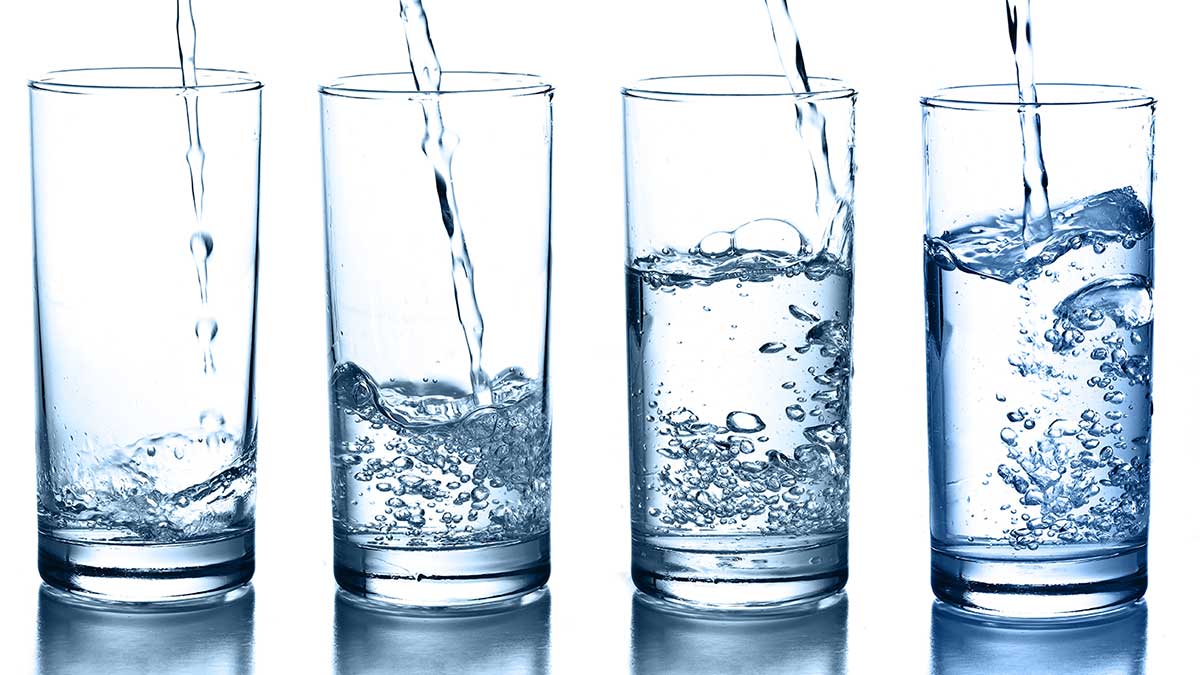My journey into the world of water began when I first came to grips with the reality that water was in short supply. In 2010, my parents started an olive oil farm by planting 14 acres of young olive trees near Los Angeles. But before their first harvest, they received a letter from the State of California saying their well water might be restricted due to drought. It was an wakeup call that threatened their wellbeing.
Early the next morning, while walking my dog, I noticed that blades of grass were all covered with prismatic sparkling dew. Water! Out of thin air. I thought that there must be a way to harness this natural process. I made countless prototypes to find ways to harvest water from the sky reliably, inexpensively, and as safely as possible.
I found that water vapor can be captured from the air and converted into drinking-quality water. The early designs were large, heavy, ugly, expensive, and had water production output. Despite the slow progress, I felt that I was onto something. So, I founded my first company to pioneer a new source of drinking water for humanity: DewGood.
Reality Bites
As I looked closer and closer into the world of water, I realized that the problem was far more significant than just shortages of potable water for agriculture and drinking. The world had another water problem. Quality. Clean, safe tap water, an assumption we all grew up on in this country believing was a God-given right, was a myth.
Case in point: I traveled to Flint, Michigan, for the city’s “Water Unity Festival.“ While there, I met with a mother whose two sons had died of lead poisoning from Flint’s water system! This was so shocking that it galvanized me to my core. I no longer question humanity’s deep demand for pure water where it’s needed. I committed myself to making water for home consumption.
I struggled to find commercial success due to the high cost of producing each machine, which was still quite large. A meeting in 2019 with my partner Tyler Breton proved to be serendipitous. Tyler saw the massive potential in water harvesting technology. We recognized that if we could “make it cool, like a Tesla,“ water-making appliances could capture a place in the kitchen. Together, we evolved DewGood into a new company focused on making an appliance, Spout Water.
Talking with customers gave us a clear direction: Many folks felt terrible about using plastic bottles and wanted something higher quality than tap water but without the expense and complexity of water delivery. Our mission focused on building a device that provided the highest quality water, free from contaminants, and using sustainable practices that do not deplete natural resources. We wanted to help end the tyranny of plastic bottles, designing a countertop device that we hope fits effortlessly into people’s lives. Access to pure water should be easy, waste-free, and enjoyable.
From Concept To Product
We introduced the Spout Monolith, which can make 2.5 gallons of fresh water daily — from the air in customers’ homes. People reacted like the device was magic. It turns out that most people understand that there’s moisture in the air. Few imagined it was possible to produce gallons of delicious water a day. As Arthur C. Clarke observed, any sufficiently advanced technology appears to be magic.
With these encouraging signals, the Spout team set out to refine our product further by delivering greater functionality and refined looks. Fred Bould, who designed the Nest Thermostat, partnered with us to make an elegant, highly functional appliance that can be a centerpiece of freshness in every modern home.
Meanwhile, the world’s water problem was going from bad to worse. Water reservoirs continued running low to dry. Five hundred billion plastic bottles are used globally every year. Only around 9% are recycled successfully. Meanwhile, the news about microplastics in our food, our water, our bodies, and even the bodies of our unborn children continued to get worse.
Inside The Plastic Bottle
Curious and wanting to understand more about where these microplastics were getting into our water, I took a closer look at a plastic water bottle, a very close look under a powerful Leica DIC microscope. What I found was pretty shocking.
At 400x magnification, what seems smooth and shiny is clumpy and gross, filled with tiny microplastics. It was also clear that these tiny plastic bits often come from how bottles are made. Here’s what I saw.
- Tiny cracks caused by stress during production.
- Loose pieces of microplastic are left from cutting and trimming the bottle.
- Leftover chemicals that were used to keep the plastic from sticking to molds.
- Small bumps and pits on the surface of the inside of the bottle can shed microplastic caused by uneven cooling.
- Degraded particles created as plastic additives, colorants, and stabilizers break down during use.
- Dirt or debris mixed in during manufacturing could contaminate the water in a bottle.
I knew that we had to test Spout’s water to make sure that the water our machine creates is a reliable alternative to bottled and tap water. We enlisted a reputable third-party laboratory, Hydronomy, to conduct comprehensive tests on our water samples. You can test your water by mail using Hydronomy’s SimpleLab service.
Spout Delivers
Our tests with SimpleLab focused on high-density polyethylene (Plastic #2) commonly found in household items like bottles and bags. High-density polyethylene microplastics can carry toxic chemicals and pathogens, posing significant health risks such as hormonal disruptions and increased cancer risks.
SimpleLab analyzed Spout water for microplastics across a range of sizes, from 10 to 5000 micrometers, roughly comparable to the size of one red blood cell up to a small pebble. The results were clear and conclusive: no microplastics or PFAS were detected in Spout water across all size categories (see our full test results here).
We believe the findings demonstrate that Spout’s advanced filtration processes effectively eliminate even the tiniest plastic particles, ensuring the highest quality water is available to our customers. To put this in perspective, a recent study by Orb Media found that 83% of tap water samples globally contain microplastic fibers, with the contamination rate in the United States being as high as 94%. If Spout water were tested under the same conditions as general tap water, it could outperform 93% of samples from American water systems.
By ensuring that Spout water is free from these harmful microplastics and chemicals, we want to provide humanity with a healthier alternative, the purest, safest water possible. Think of the Spout Monolith as a private well that can sit in every kitchen and in larger formats on rooftops or at a farm to give anyone on Earth a secure, safe, and pure source of endless, delicious water.
About the Author
Reuben Vollmer is the CEO and co-founder of Spout Water. He was born and raised in California. Learn more about Spout and reserve your machine at Spoutwater.com. Use the discount code MITCH911 to save $100.
Source link
Earth911 earth911.com


